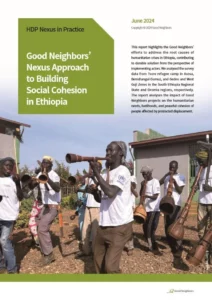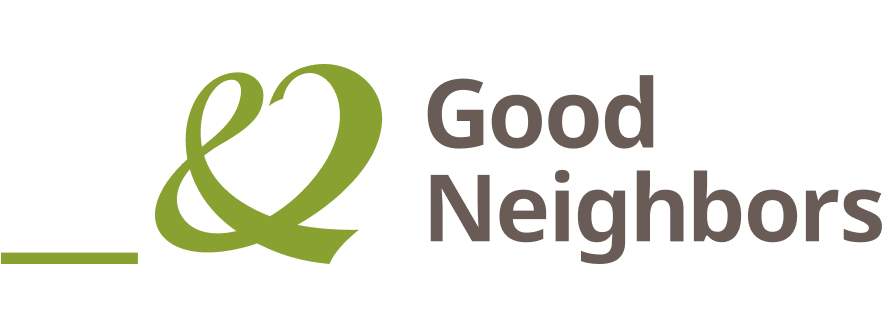June 24, 2024 – Good Neighbors has released a report on its nexus approach to building social cohesion in Ethiopia, providing an analysis of the organization’s efforts in addressing humanitarian crises and fostering social cohesion in the target country. This report marks a significant step in understanding and implementing the Humanitarian-Development-Peace (HDP) nexus approach in practice.
The report details the analysis undertaken by Good Neighbors Global Partnership Center, in collaboration with its UN Cooperation Office in Geneva, Good Neighbors Ethiopia, and Good Neighbors Japan. By analyzing survey data from various regions of Ethiopia, including the Tsore refugee camp in Asosa, Benishangul-Gumuz, and the Gedeo and West Guji Zones in the South Ethiopia and Oromia regions, the report analyses the impact of Good Neighbors’ initiatives on humanitarian needs, livelihoods, and the peaceful coexistence of people affected by protracted displacement.

The report highlights that Good Neighbors’ implementation of the HDP nexus approach promotes integrated, collaborative, and sustainable solutions to address humanitarian crises in Ethiopia. Livelihood projects, including business training, vocational education, and village savings and loan associations, have enhanced the economic self-reliance of both refugees and host communities. Social cohesion initiatives, such as neighborhood relations committees and community dialogues, have helped reduce social tensions and build mutual trust.
The report concludes that Good Neighbors’ implementation of livelihood and peacebuilding activities has contributed to creating sustainable solutions for the challenges faced by displaced populations in Ethiopia by increasing income levels and enhancing social trust between refugees and host community members.
Lastly, for further development, it suggests that supporting enhanced livelihood opportunities can contribute to social trust, and invigorating and consolidating the roles of inter-group committees can serve as a preventive measure to mitigating social tensions. It recommends that international actors and government discuss overarching coordination throughout each phase, considering their respective comparative advantages.
Good Neighbors remains focused on its mission of empowering people and transforming communities through inclusive and holistic strategies. The full report is available here.
Good Neighbors is an international humanitarian and development organization founded in 1991, working in over 50 countries to make the world a place without hunger and where people live in harmony. Engaging with over 200 communities globally, we empower people and transform communities through social and economic development initiatives. Good Neighbors has General Consultative Status with the United Nations Economic and Social Council (UN ECOSOC) since 1996.
For further information, please contact Good Neighbors Global Partnership Center.
Good Neighbors is a global NGO dedicated to improving the lives of children and communities in over 50 countries.
Good Neighbors has held a General Consultative Status to the United Nations Economic and Social Council (ECOSOC) since 1996.
